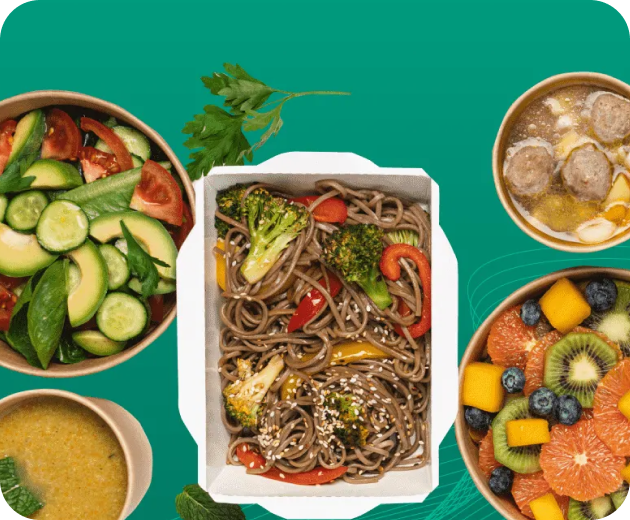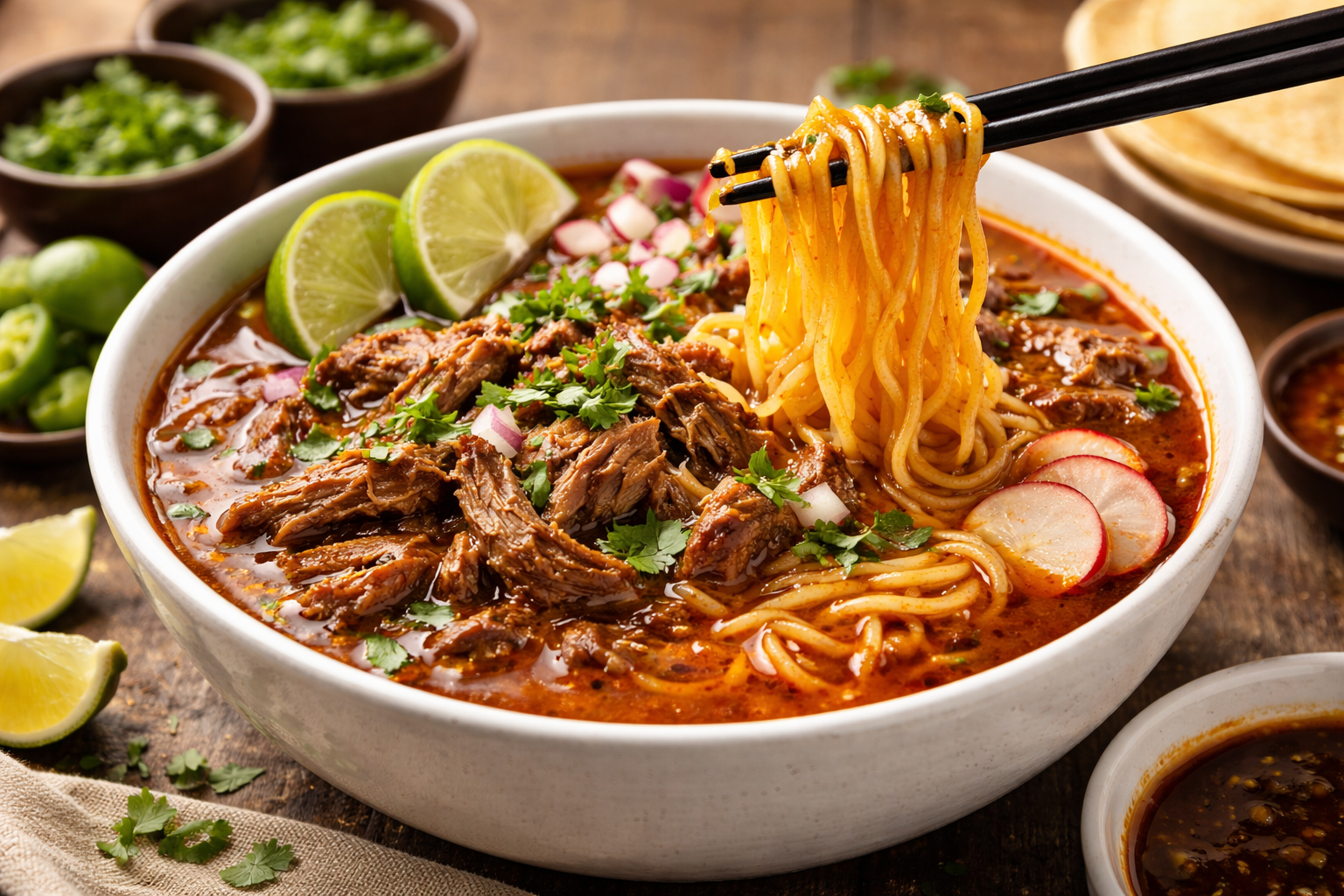Sustainability, strategy, and obligation: What’s next for food and beverage?
Welcome to Tastewise Talks, a series of conversations between Tastewise CEO Alon Chen and insightful thought leaders in the food and beverage industry.
Sustainability, strategy, and obligation: What’s next for food and beverage?
On November 16, 2022, David Shaw, ESG Director, International Zone at Kraft Heinz, sat down for a Tastewise Talk with Alon Chen , Tastewise CEO. They discussed all things sustainability -– its role in consumer behavior, its future in the industry, what it means for business bottom lines, and more.
Tastewise is the AI platform food brands use to make smarter decisions for a healthy, sustainable, and delicious future. It gives sales, marketing, and insights teams the data they need to make an impact on the market by compiling global data sources, including home cooking analytics, social media, and millions of restaurants and their menu items to bring the freshest ingredients. Tastewise brings a unique perspective on plant-based foods through their own data and analytics.
Kraft Heinz is the third largest food and beverage company in North America and the fifth-largest food and beverage company in the world, with eight $1 billion+ brands. A globally trusted producer of delicious foods, The Kraft Heinz Company provides high quality, great taste and nutrition for all eating occasions whether at home, in restaurants or on the go.
ESG at Kraft Heinz
As an ESG professional, David Shaw drives the overall strategy for environmental, social and governance. It’s a broad topic, covering everything from human rights to environmental footprint and how to govern the company and make decisions based on those ideas. An ESG professional makes sure the company is consistent in big ambitions and small ambitions that get made every day across the globe. At global food powerhouses like Kraft Heinz, ESG work is especially urgent.
The impact of Covid and Inflation on companies
Prior to the Covid pandemic, sustainability and saving the planet dominated the cultural conversation. However, at the onset of the pandemic, individual needs weren’t filled and populations began valuing their own survival above the survival of the planet.
Sustainability took a back seat.
Now, the graph is rising again. Consumers are interested in sustainability again, but the rise is still too slow. Between supply chain disruptions and inflation caused by geopolotical instability, consumers aren’t willing to pay more for sustainability.
But David Shaw has good news to share. In the aftermath of Covid, consumers are able to see humanity’s direct impact on the planet. More companies are committing to sustainability commitments.
He advocates for more accountability for companies. Consumers aren’t prepared to pay more for sustainability, and companies need to be sustainable for them. He also knows that there’s a cost to innovation, but he recognizes the importance of change.
In the next five years, diet related diseases will be the single greatest killer of the adult population. Both environmental health and individual health will depend on the choices companies make.
Watch the full conversation between Alon and David here!
What about meat, dairy, and commodities?
The human population has tripled in the last one hundred years. Corporations like Kraft Heinz touch many people’s lives through food.
But how do they prioritize making an environmental impact?
Currently, retail stores are dominated by mega commodities. Cereals, dairies, tomatoes, etc. Those commodities that dominate on the shelves may not be the best for the planet and consumer. They’re often easy to grow, loaded with salt, fat, and sugar. David says it’s time to transition to provide consumers with products that are good for them and good for the planet.
Kraft Heinz has a large meat and dairy portfolio, but David says that if they decided to discontinue the portfolio overnight, the demand would simply shift elsewhere. Instead, his priority is making sure the stewards of the business make the right decisions based on their carbon footprint. He looks to support them while they transition and adapt.
On meeting demand in developing countries
Working with international markets, David has the opportunity to compare the consumption habits of developed and developing nations and how they consume meat and dairy products.
In developing countries, meat is considered a luxury item and is not consumed in the same quantities as in the developing world. However, as social mobility increases in developing countries and they can afford more meat and dairy, those markets increase consumption in those categries. For David, the question is how to develop the right propositions and talk about ingredients in a way that benefits the health of both the planet and of the consumer.
Kraft Heinz launched a campaign recently for a coalition to double bean consumption in the next five years. They’re a core diet staple in developing countries, and are often overlooked. Instead of imposing ideas of what to eat on developing neations, the goal is to use what people already consume and build up food options around the food and diet that already exists.
Tastewise CEO Alon Chen added that he’s seen how versatile an ingredient like beans can be. When he lived in Ireland, he was initially surprised to see people eating beans on toast. Growing up in Israel on the Mediterannean diet meant that Alon mostly ate fresh ingredients, but he understands innovation and openness is how we can support sustainability. Sustainability means, change and introducing new foods to consumers. For example, America saw a rise in the popularity of bowls recently, but that format has been a staple of the Mediterranean diet for a long time, where there’s access to affordable fruits and vegetables. Alon says that the same can be done for other ingredients and formats, if they’re presented in a way that is exciting to the consumer.
Animal protein and the economy
It’s no secret that because meat and dairy is a huge employer, the government provides heavy subsidies for animal based proteins. Even in developed countries like Switzerland, where the government is aiming to achieve net zero greenhouse gas emissions by 2050, these subsidies give the meat and dairy industries an advantage.
40% of the global population is in some way associated with the food industry and 10% of the American workforce is in the restaurant industry.
The future of food is also about the future of work.
David spoke about how companies need to accelerate transition to sustainability and drive the changes the environment requires without hurting such a large portion of the global population.
For David, there are disruptors and there are transformers. For Kraft Heinz to exist in 150 years, they have to transform or risk being disrupted.
Nostalgia
While change is necessary for a company to grow, the past can often be a great source for innovation.
Alon divides food trends into culinary, motivation, benefit, and need. Lately, he’s noticed a trend toward the past. Alon’s grandmother is Iraqi. She used to ferment all kinds of vegetables, and he would get to drink the brine. Now Kombucha is one of the biggest hits in beverage. Through what he sees on Tastewise, Alon thinks we’re headed toward a more clean, less processed food landscape.
David agrees, saying people rely on what they associate with childhood. There’s still the exploration factor. People like to travel and discover artisanal products and processes, but that is also associated with tradition wherever those products are from.
Consumers associate nostalgia with transparency, but one issue David’s seen with plant-based products is that their ingredients and preservatives are often unfamiliar to consumers. The nostalgia factor doesn’t drive plant based proteins, but exploration does.
Global Perspectives and Regenerative Farming
Alon spoke about the Jewish practice of Shmittah, where farmers let the earth rest every 7 years. He called it an ancient form of regenerative farming.
David also had perspectives on looking at the past and learning how to use it in the present. He mentioned an article he read on farming practices in the 1920s, and they were basically the rules for regenerative agriculture. It turns out that while technology is needed to transition to more sustainable practices, many answers to environmental issues have been hiding in plain sight.
Sustainable Packaging
But there’s a balance to be struck. The meat industry uses plastic packaging to preserve meat, and if you replace it with paper, shelflife shortens and we end up with more pollution, food waste, and a negative impact on the environment. Solutions are not so easy.
David says there is no perfect solution. There are only better choices and innovating and improving on those choices. You need to be clear on your areas of concern and what matters to you, then you need to build that into a decision making framework. For example, there’s a significant investment when it comes to packaging. There are entire factories built around it, huge infrastructures, but there are also opportunitities to do things differently.
But the reality is complicated. 70% of consumers say they’d use refillable packaging, but Kraft Heinz has conducted many trials with refillable and reusable packaging, and they fail because the consumer transition is taking longer.
David says that to really meet the needs of the transformation, we need to make sustainability affordable. The first priority of consumers is price, then taste. Only after that do they consider brand, packaging, convenience and health. Sustainability is at the very bottom.
But David’s organization is focusing most on regenerative agriculture. At this point, the industry has created industrial farming optimized for cost, yield, and production volumes. Changing that for the sake of the biodiversity in the region will impact those choices. There’s always a cost of transition, and the cost can’t be picked up by the consumer. It’s the investment up front that makes the transition work.
What’s next
The challenges ahead for large companies like Kraft Heinz are hard to meet, balancing the needs of consumers, workers, and the planet. The best tool to tackle those challenges is knowledge. The more people know about the impacts of their decisions, the parts of their industry they can change for sustainability, and how to move consumers to more sustainable behaviors, the easier it will be to face those challenges.
Curious to hear industry leaders’ thoughts on an urgent issue facing your business? Let us know, and we’ll explore it on a future Tastewise Talk.




